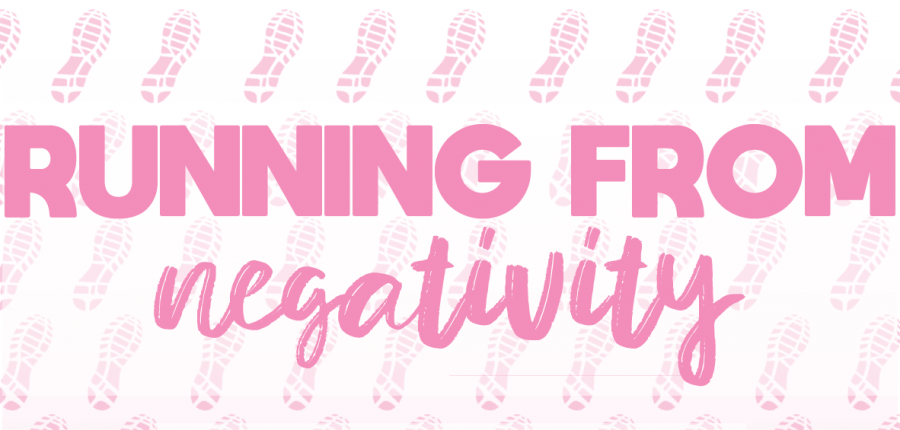Running from negativity
October 25, 2019
Most would agree that running is not their favorite activity. Whether it’s a timed mile or the elementary school run test, a negative connotation tends to follow the hobby. However, Girls on the Run views running in a very different manner. Contrary to popular opinions about running, this program utilizes physical activity to fight feminine stereotypes and other social issues young girls face. According to its website, Girls on the Run aims to “create a world where every girl knows and activates her limitless potential and is free to boldly pursue her dreams.”
What is the program?
Shannon Butters, executive director of Girls on the Run Central PA, described the organization as “a physical activity-based positive youth development program.” Butters said it is designed for girls in third through eighth grade, and it strives to “enhance girls’ social, psychological and physical skills and behaviors to help them successfully navigate life experiences.” Throughout their time participating in the program, girls are able to learn about healthy relationships, their own strengths and the ability to positively affect the community.
Occurring over the course of five weeks — with each session focusing on a theme — Girls on the Run concludes with an ultimate goal: the girls completing a 5k race.
How did it begin?
In 1996, Molly Barker began Girls on the Run in Charlotte, N.C. The organization started out with only 13 girls and now serves over 200,000 a year with the guidance of almost 100,000 volunteers. There are over 200 councils dedicated to this program today across all 50 states.
Having a similar beginning, the Girls on the Run Central PA was created in 2010, starting with a team of only eight girls. With the assistance of almost 200 coaches, there are now 33 different sites that help over 800 girls across six counties.
Why is it important?
The most beneficial aspect of the program according to Butters is “the emphasis on developing competence, confidence, connection, character, caring and contribution in young girls through lessons that incorporate running and other physical activities.” Girls on the Run’s lessons cover topics ranging from positive self-talk, standing up to peer pressure, making critical decisions, being intentional about choosing friendships, identifying and handling both comfortable and uncomfortable emotions and demonstrating respect and responsibility toward themselves and others. “Through these lessons, the program is able to empower girls and teach them the importance of setting goals and working hard to achieve them,” Butters said.
How do I get involved?
Additionally, the volunteers who coach for Girls on the Run — which includes parents, teachers, college students, etc. — contribute to the empowering nature of the program because they act as role models for the girls. “[The coaches] bring their experience and expertise and share it with the girls, to help open their eyes to their own limitless potential,” Butters said.
University students can become involved in the program by participating as coaches and volunteers. Sadie Farnsworth ’21 recruits University students to help volunteer with the program. Farnsworth sees the central theme of Girls on the Run as “star power,” or the idea of promoting “girls to feel confident and see the positive in themselves.” Throughout practices, girls who exhibit “effort, strength and determination” receive a star point to recognize their effort, Farnsworth said.
“As a mentor, I have learned more than I could have ever imagined,” Farnsworth said. “In just the two years I have coached them, I have seen these young girls gain confidence in themselves. Each and every girl is proud of her accomplishments and works hard to reach her own goals. Not only that, but they reach their goals with the help of their teammates. It is truly an incredible thing to be a part of.”
Emma Glessner ’20 and Megan Karoly ’20 have also participated in the program as mentors for the past few years. “In my opinion, the girls gain awareness and perspective. They realize that they are not alone in the struggles they may face — whether they are struggling to confront friends or struggling to feel beautiful in our society,” Glessner said. “Learning about empowerment while still in elementary school can be very beneficial because it is often a time when social situations become more challenging to navigate and when confidence begins to decline.”
Karoly also noted the positive aspect of the program. “We teach them the importance of practicing positive self-talk with themselves as well as with those around them. The girls are faced with exercises that may challenge their way of thinking and push them outside of their comfort zone, which encourages them to embrace new perspectives,” Karoly said. “Having the opportunity to stand as a mentor to these young girls has been one of the most gratifying experiences during my time at the [University].”
These University mentors at Girls on the Run hope the organization can continue to grow and will become increasingly available to all regardless of socioeconomic status. Women’s empowerment could be spread on-campus, Farnsworth suggested, through Greek organizations adopting a similar empowerment curriculum where women are taught lessons about confidence and other topics while participating in a fun activity. These programs could help women grow more confident and positive about themselves and their relationships with others. Although Girls on the Run is a program intended for younger ages, it teaches lessons that can be applied to all.






















